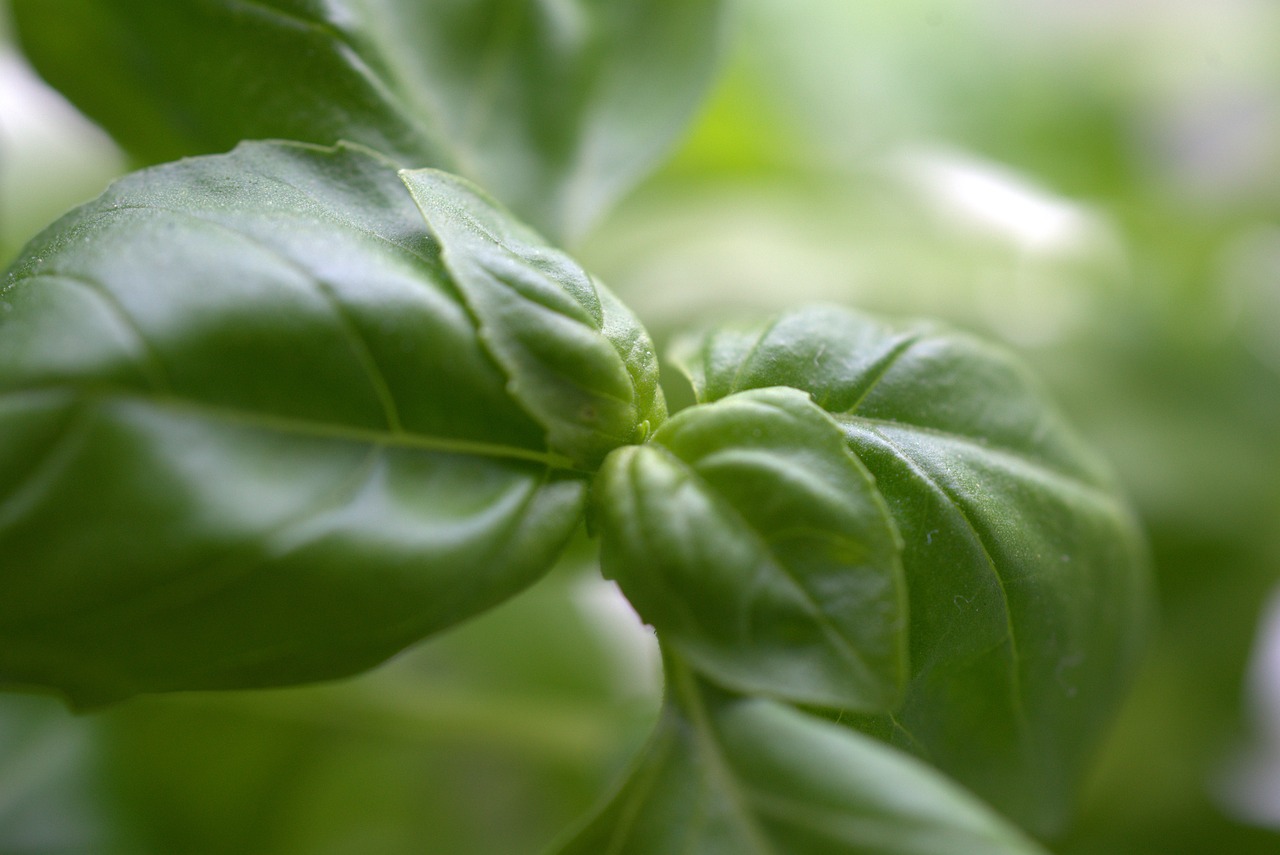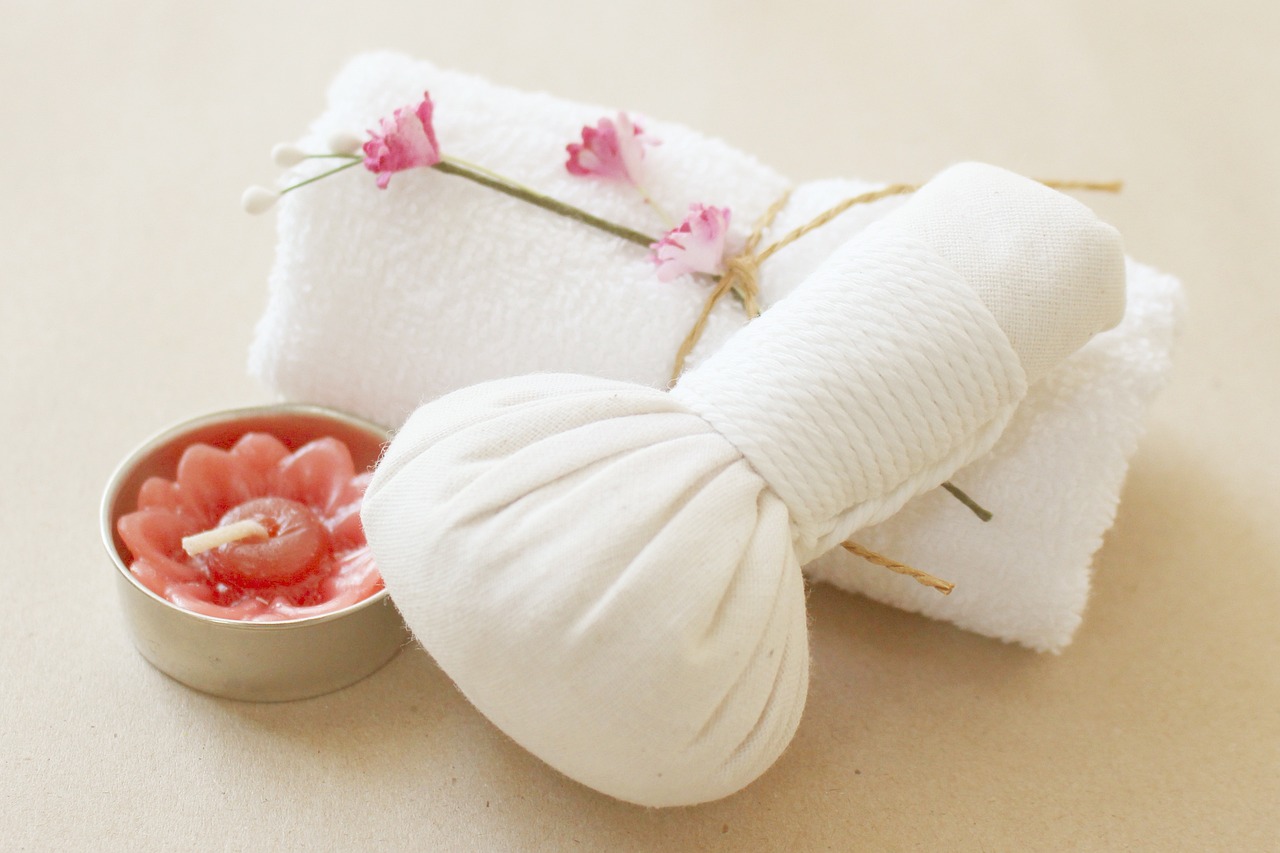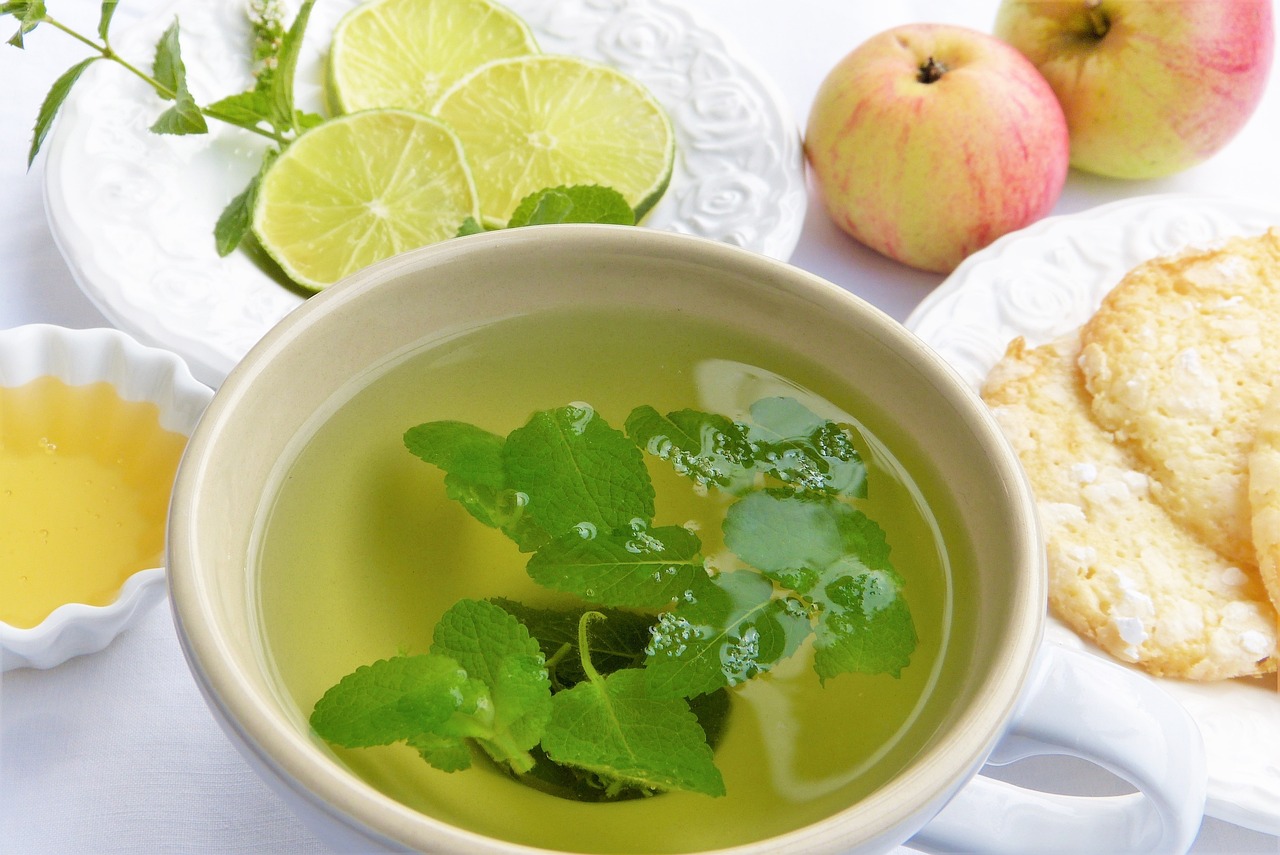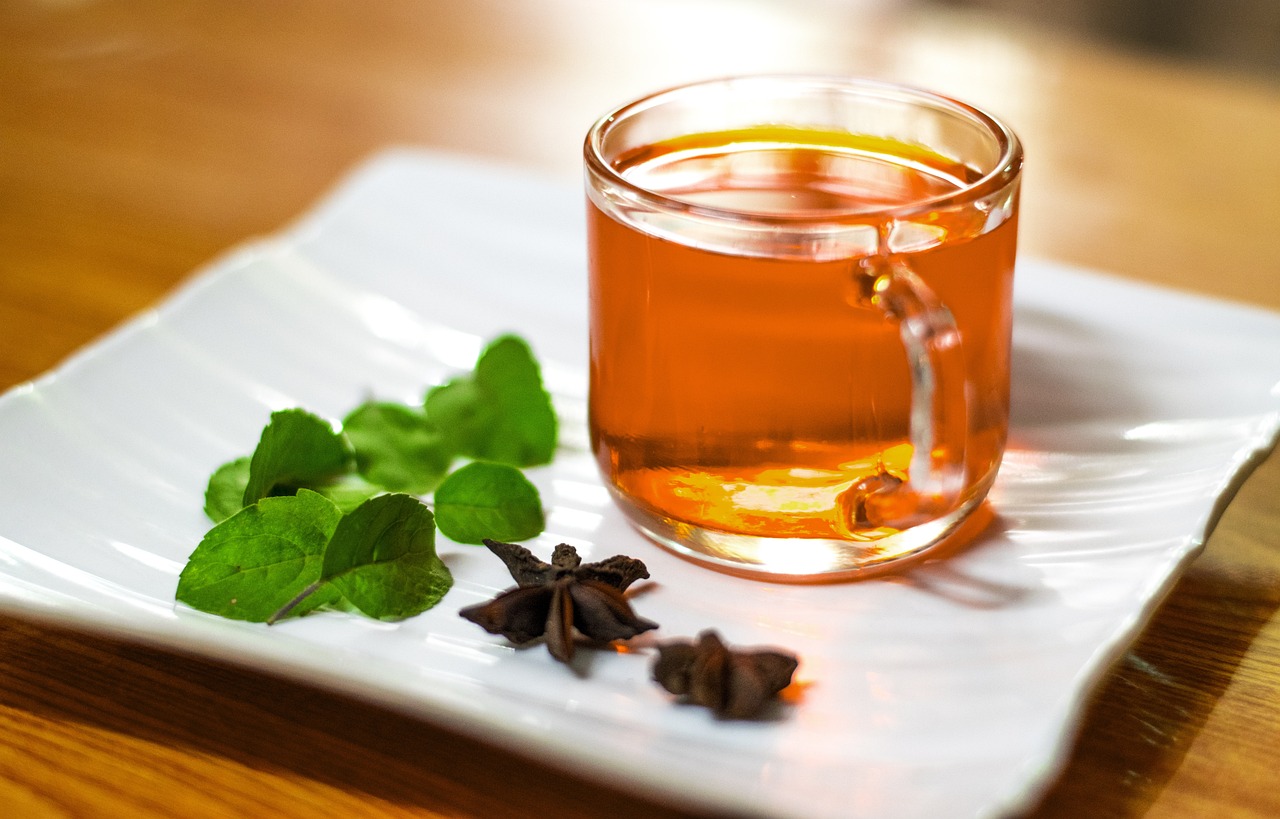Top 5 Herbal Remedies from Your Garden
Explore the healing properties of common herbs that can be easily grown in your garden. This article will delve into their benefits, uses, and how to incorporate them into your daily life. Imagine stepping into your backyard and discovering a treasure trove of natural remedies right at your fingertips. With just a little effort, you can cultivate herbs that not only enhance your cooking but also provide a wealth of health benefits. Whether you’re dealing with a pesky headache or seeking a natural way to relax, these herbs can be your go-to solutions. Let’s dive into the world of herbal remedies and see what your garden can offer!
Basil is not only a culinary favorite but also a powerful herb for alleviating digestive issues and headaches. This aromatic herb is rich in antioxidants and has anti-inflammatory properties that make it a fantastic addition to your home remedies. You can easily incorporate basil into your meals, but it also shines when used in teas or infused oils. Imagine sipping on a warm basil tea after a heavy meal; it’s like giving your digestive system a gentle hug! To use basil effectively, try making a simple infusion by steeping fresh basil leaves in hot water for about 10 minutes. Add a bit of honey for sweetness, and you’ve got yourself a delicious remedy.
Mint is well-known for its soothing properties, especially for digestive discomfort. Its fresh aroma and invigorating taste can uplift your spirits while calming your stomach. Have you ever taken a deep breath of fresh mint? It’s like a refreshing breeze on a hot summer day! Mint can be enjoyed in various forms—think mint tea, mint-infused water, or even as a garnish for your favorite dishes. To make a delightful mint tea, simply steep a handful of fresh mint leaves in boiling water for 5-7 minutes. Not only will it help with digestion, but it also acts as a natural breath freshener. Who knew a simple herb could do so much?
Rosemary is celebrated for its cognitive benefits, including improved memory and concentration. This fragrant herb has been linked to enhanced brain function, making it a fantastic ally for students or anyone needing a mental boost. Picture yourself studying for an exam, surrounded by the scent of rosemary; it’s like nature’s way of helping you ace that test! You can use rosemary in your cooking, but it also works beautifully in teas or as an essential oil. To create a rosemary infusion, steep fresh rosemary leaves in hot water for about 10 minutes. Sip it while you study, and let the aroma work its magic on your mind!
Thyme is a powerful antiseptic herb that can help combat respiratory infections and skin irritations. This small but mighty herb is packed with thymol, a natural compound known for its antibacterial properties. Think of thyme as your personal bodyguard against germs! You can use thyme in your cooking, but it’s also effective in herbal infusions. To create a thyme-infused remedy, steep fresh or dried thyme leaves in hot water for 10 minutes. This infusion can help soothe a sore throat or clear up a cough. It’s a simple yet effective way to harness the power of nature!
Chamomile is renowned for its calming effects, making it an excellent choice for reducing anxiety and promoting sleep. When you think of chamomile, picture a cozy evening, perhaps with a warm cup of chamomile tea in hand, melting away the stress of the day. This delicate flower is not just soothing; it’s also packed with antioxidants. To brew a perfect cup of chamomile tea, steep dried chamomile flowers in hot water for about 5 minutes. Add a splash of lemon or a drizzle of honey to enhance the flavor. You’ll find that this simple ritual can transform your evening routine into a peaceful escape.
Cultivating your own herbal remedies can be rewarding and beneficial. You don’t need a sprawling garden to grow these herbs; even a small balcony or windowsill can do the trick! Start by choosing a sunny spot, as most herbs thrive in bright sunlight. Ensure you use well-draining soil and water them regularly, but be careful not to overwater. The joy of watching your herbs grow and then using them in your daily life is truly unparalleled. Plus, there’s something magical about picking fresh herbs right from your garden!
Proper harvesting and storage techniques are essential for maintaining the potency of your herbs. When it comes to harvesting, the best time is in the morning after the dew has dried but before the sun is too hot. This ensures the essential oils are at their peak. For storage, consider drying your herbs to preserve their flavor and benefits. You can hang them upside down in a cool, dark place or use a dehydrator. Once dried, store them in airtight containers away from light and moisture. This way, you can enjoy the goodness of your garden herbs all year round!
Herbal infusions and teas are simple ways to enjoy the benefits of garden herbs. The process is straightforward and can be quite fun! You can experiment with different combinations of herbs to find your favorite blends. For instance, mixing chamomile and mint can create a delightful evening tea that promotes relaxation. Just remember to use fresh or dried herbs, boiling water, and let them steep for the right amount of time. The result? A delicious, health-boosting beverage that’s as enjoyable to drink as it is beneficial for your body!
Integrating herbs into your daily routine can enhance your overall well-being. Think about adding fresh basil to your pasta dishes, mint to your smoothies, or rosemary to your roasted vegetables. The possibilities are endless! You can even use herbs in your skincare routine—try making a soothing thyme-infused oil for your skin or a chamomile face wash for a calming effect. Additionally, consider creating natural cleaning solutions with herbs like rosemary or thyme, as they can provide antimicrobial properties while leaving your home smelling fresh. It’s all about making the most of what nature offers!
Q: Can I grow these herbs indoors?
A: Absolutely! Most of these herbs can thrive indoors as long as they receive adequate sunlight and are kept in well-draining soil.
Q: How can I tell if my herbs are ready to be harvested?
A: You can start harvesting once your herbs are established and have enough foliage. A good rule of thumb is to wait until they reach about 6 inches tall.
Q: Are there any side effects of using these herbs?
A: While these herbs are generally safe for most people, it’s always best to consult with a healthcare provider if you have specific health concerns or conditions.

Basil: The Versatile Healer
Basil, often referred to as the "king of herbs," is more than just a delightful addition to your favorite pasta dishes; it’s a powerhouse of health benefits that can transform your well-being. This aromatic herb, with its vibrant green leaves and distinct fragrance, has been cherished for centuries not only for its culinary uses but also for its medicinal properties. Have you ever wondered how something so simple can pack such a punch? Let’s dive into the incredible healing attributes of basil and discover how you can incorporate it into your daily life.
One of the standout features of basil is its ability to alleviate digestive issues. If you’ve ever experienced an upset stomach after a meal, a cup of basil tea might be just what you need. The herb contains essential oils that can help soothe the digestive tract, reduce bloating, and ease discomfort. Just imagine sipping on a warm cup of basil tea after a hearty meal; it’s like giving your stomach a gentle hug!
But that’s not all—basil is also known for its effectiveness in combating headaches. The herb is believed to have anti-inflammatory properties that can help relieve tension and pain. If you feel a headache creeping in, consider making a simple basil poultice. Just crush a handful of fresh basil leaves, mix with a little water, and apply it to your temples. You’ll not only enjoy the fresh scent but may also find relief from that nagging pain.
Incorporating basil into your home remedies is a breeze. Here are a few easy ways to make the most of this versatile herb:
- Basil Tea: Steep fresh basil leaves in boiling water for about 10 minutes. Add honey or lemon for flavor.
- Basil Oil: Infuse olive oil with fresh basil leaves to create a flavorful dressing or cooking oil.
- Basil Pesto: Blend fresh basil with garlic, pine nuts, Parmesan cheese, and olive oil for a delicious sauce that can be used in various dishes.
Moreover, basil is rich in antioxidants, which help protect your body from oxidative stress and inflammation. This means that adding basil to your diet could potentially contribute to a stronger immune system and improved overall health. So, why not take a moment to appreciate this humble herb? It’s like a secret weapon in your garden, ready to assist you in maintaining your health.
As you cultivate your own basil plants, you’ll find that they are relatively easy to grow. They thrive in warm weather and require plenty of sunlight. A simple pot on your kitchen windowsill can provide you with a fresh supply of basil all summer long. Just imagine the satisfaction of plucking fresh leaves for your meals while knowing you’re also reaping the health benefits!
In conclusion, basil is not just a culinary herb; it's a versatile healer that can enhance your health in numerous ways. From soothing digestive issues to alleviating headaches, this herb deserves a prominent spot in your garden and kitchen. So, the next time you’re at the grocery store or farmer's market, don’t forget to pick up some fresh basil. Your body will thank you!
Q: Can I use dried basil instead of fresh basil?
A: Yes, you can use dried basil, but fresh basil offers more potent flavor and health benefits. If possible, opt for fresh.
Q: How often can I consume basil?
A: You can enjoy basil in moderation daily. It’s a great addition to meals, teas, and infusions.
Q: Are there any side effects of consuming basil?
A: Basil is generally safe for most people, but those with certain health conditions or pregnant women should consult a healthcare provider before using it medicinally.

Mint: A Refreshing Remedy
When you think of mint, what comes to mind? Perhaps a refreshing mojito on a hot summer day or a soothing cup of mint tea before bed. But did you know that this vibrant green herb is much more than just a flavor enhancer? Mint is a powerhouse of health benefits, making it a must-have in your garden. Its soothing properties are particularly effective for alleviating digestive discomfort, making it a natural remedy for those pesky tummy troubles.
One of the most delightful aspects of mint is its versatility. You can enjoy it fresh, dried, or even as an essential oil. Imagine sipping on a warm cup of mint tea after a heavy meal; the aroma alone can transport you to a serene garden, melting away stress and discomfort. Mint contains menthol, which not only provides that characteristic cooling sensation but also helps relax the muscles of the gastrointestinal tract, aiding in digestion.
Furthermore, mint is known to combat nausea and headaches. If you ever find yourself feeling queasy, try chewing on a few fresh mint leaves or brewing some mint-infused tea. It's like a gentle hug for your stomach! Additionally, the invigorating scent of mint can help clear your mind and boost your mood, making it a fantastic natural remedy for anxiety and stress.
Incorporating mint into your daily routine is simple and enjoyable. Here are a few ideas to get you started:
- Mint Tea: Brew fresh mint leaves in hot water for a refreshing drink that aids digestion.
- Mint Smoothies: Add a handful of mint to your favorite smoothie for a refreshing twist.
- Mint-Infused Water: Place fresh mint leaves in your water pitcher for a refreshing and aromatic hydration option.
Moreover, mint can be easily grown in your garden or even in pots on your windowsill. This hardy herb thrives in well-drained soil and can quickly spread, so be sure to give it plenty of space or keep it contained. With just a little care, you can have a constant supply of fresh mint at your fingertips, ready to enhance your culinary creations or provide soothing relief whenever needed.
In conclusion, mint is not just a refreshing herb; it’s a versatile remedy that can improve your overall well-being. Whether you’re looking to soothe digestive issues, lift your mood, or simply enjoy its delightful flavor, mint is a fantastic addition to your herbal arsenal. So, why not plant some in your garden today? Your taste buds—and your body—will thank you!
- How do I grow mint? Mint thrives in well-drained soil and needs partial to full sunlight. It can be grown in pots to prevent it from spreading too much.
- Can I use dried mint instead of fresh? Yes, dried mint can be used in recipes, but fresh mint typically has a stronger flavor and more health benefits.
- Is mint safe for everyone? While mint is generally safe, some people may experience allergic reactions or heartburn. It’s always best to consult with a healthcare provider if you have concerns.

Rosemary: Memory and Focus Booster
Have you ever walked into a kitchen where the scent of rosemary wafts through the air, instantly making you feel more alert? This aromatic herb is not just a delightful addition to your culinary creations; it's also a powerful ally for your brain. Rosemary has been celebrated for centuries, not only for its flavor but also for its remarkable ability to enhance memory and concentration. Imagine your brain as a garden; rosemary is like that special fertilizer that helps your thoughts grow stronger and clearer.
Research suggests that rosemary can improve cognitive performance and boost memory retention. In fact, studies have shown that simply inhaling rosemary essential oil can lead to improved alertness and memory recall. So, the next time you're studying for an exam or trying to remember important details for a presentation, consider surrounding yourself with this fragrant herb. It’s like having a little brain booster right in your home!
Incorporating rosemary into your daily routine is easier than you might think. Here are a few simple ways to use this herb effectively:
- Herbal Tea: Steep fresh rosemary leaves in hot water for a refreshing tea that can sharpen your focus.
- Cooking: Add rosemary to roasted vegetables or meats to not only enhance flavor but also to reap its cognitive benefits.
- Aromatherapy: Use rosemary essential oil in a diffuser while working or studying to create an environment that promotes concentration.
Moreover, rosemary is rich in antioxidants and anti-inflammatory compounds, which contribute to overall brain health. This means that by using rosemary regularly, you're not only boosting your memory but also protecting your brain from oxidative stress. Think of it as a shield for your mental clarity, allowing you to navigate through life with sharper focus and enhanced cognitive abilities.
But wait, there’s more! Rosemary is also versatile in its applications. You can make a simple rosemary-infused oil by combining fresh rosemary with olive oil. This infusion can be drizzled over salads, used in cooking, or even applied to your skin for a refreshing aroma. It's a delightful way to enjoy the benefits of rosemary while adding a touch of flavor to your meals.
So, the next time you're feeling a bit foggy or overwhelmed, remember that rosemary is more than just a pretty herb. It’s a powerful tool for enhancing your memory and focus, making it an essential plant to have in your garden. Whether through culinary delights or aromatic experiences, rosemary can help you cultivate a sharper mind and a more focused life.
1. Can rosemary help with anxiety?
Yes, rosemary has calming properties that can help reduce anxiety levels when used in aromatherapy or consumed as tea.
2. How can I grow rosemary at home?
Rosemary thrives in well-drained soil and requires full sunlight. It can be grown in pots or directly in the garden.
3. Is it safe to consume rosemary every day?
In moderation, rosemary is safe for daily consumption. However, excessive amounts may lead to digestive issues.

Thyme: The Antiseptic Herb
Thyme, often found in kitchens around the world, is much more than just a flavor enhancer for your favorite dishes. This humble herb, with its tiny leaves and robust aroma, is a powerhouse of health benefits, particularly known for its potent antiseptic properties. Imagine having a natural remedy right in your garden that can help combat respiratory infections and soothe skin irritations—sounds like magic, doesn’t it? But it’s not magic; it’s thyme!
One of the most remarkable aspects of thyme is its ability to fight off bacteria and fungi, making it a fantastic ally in maintaining overall health. Studies have shown that thyme contains a compound called thymol, which is not only responsible for its distinct flavor but also its antiseptic qualities. You might be wondering how exactly you can harness this herb’s healing power. Well, let’s explore some practical uses!
Thyme can be easily infused into oils, making it a fantastic ingredient for natural remedies. Here’s a quick guide on how to create a thyme-infused oil:
1. Take a handful of fresh thyme leaves. 2. Gently crush them to release their essential oils. 3. Add the crushed thyme to a small jar and cover it with olive oil. 4. Seal the jar and let it sit in a warm, sunny spot for about two weeks, shaking it occasionally. 5. Strain the oil into a clean bottle, and voila! You have your very own thyme-infused oil.
This infused oil can be used for various purposes, such as a massage oil for sore muscles or as a topical treatment for minor cuts and scrapes. Just apply a small amount to the affected area, and let thyme work its magic!
Moreover, thyme is also a fantastic ingredient for homemade throat gargles. If you're feeling under the weather, a simple thyme infusion can help alleviate sore throat symptoms. Here’s how you can prepare it:
1. Boil 2 cups of water. 2. Add a handful of fresh thyme leaves or 1-2 teaspoons of dried thyme. 3. Let it steep for about 10-15 minutes. 4. Strain the liquid and allow it to cool slightly. 5. Use it as a gargle to soothe your throat.
In addition to its medicinal uses, thyme can also be a delightful addition to your meals. Whether you sprinkle it over roasted vegetables, mix it into soups, or use it in marinades, thyme not only enhances flavor but also brings its health benefits to your plate. Think of it as a culinary superhero, fighting off germs while making your food taste amazing!
To sum it up, thyme is not just a pretty herb; it’s a versatile antiseptic that can play a crucial role in your health and wellness routine. Whether you're using it in cooking, making infusions, or applying it topically, thyme is an herb that deserves a prominent place in your garden and your life.
- Can I use dried thyme instead of fresh thyme for infusions? Yes, dried thyme can be used, but fresh thyme is often more potent.
- Is thyme safe for everyone? Generally, thyme is safe for most people, but if you are pregnant or nursing, consult with a healthcare provider.
- How should I store thyme-infused oil? Store it in a cool, dark place, and use it within six months for the best potency.

Chamomile: The Calming Flower
Chamomile, often referred to as the calming flower, has been cherished for centuries for its remarkable soothing properties. Imagine coming home after a long, hectic day and unwinding with a warm cup of chamomile tea. This delightful herb not only warms your hands but also wraps you in a comforting embrace, melting away the stress of the day. Known scientifically as Matricaria chamomilla, chamomile flowers are small, daisy-like blooms that release a sweet, apple-like fragrance, instantly lifting your mood.
So, what makes chamomile such a beloved remedy? Its primary active compounds, apigenin and bisabolol, play a key role in promoting relaxation and reducing anxiety. Studies have shown that chamomile can significantly improve sleep quality, making it an excellent choice for those struggling with insomnia. Just a cup of chamomile tea before bedtime can help you drift off into a peaceful slumber, much like a lullaby sung by nature itself.
In addition to its sleep-inducing properties, chamomile is also celebrated for its ability to soothe digestive issues. If you’ve ever felt a bit queasy or bloated after a meal, a warm cup of chamomile tea can work wonders. It acts as a gentle digestive aid, helping to calm the stomach and reduce inflammation. You might say it’s like having a trusted friend who knows just the right thing to say when you’re feeling under the weather.
To fully enjoy the benefits of chamomile, you can easily incorporate it into your daily routine. Here are a few popular methods:
- Chamomile Tea: The classic way to enjoy chamomile is by brewing it into a tea. Simply steep dried chamomile flowers in hot water for about 5-10 minutes, strain, and enjoy.
- Chamomile Essential Oil: This can be used in aromatherapy or diluted with a carrier oil for a soothing massage. The calming scent helps alleviate anxiety and stress.
- Chamomile Compress: For skin irritations, a chamomile compress can provide relief. Brew tea, let it cool, and soak a cloth in it to apply to the affected area.
When it comes to preparing chamomile tea, the process is straightforward. You’ll need:
| Ingredients | Quantity |
|---|---|
| Dried Chamomile Flowers | 1-2 teaspoons |
| Boiling Water | 1 cup |
Simply combine the dried flowers with boiling water, steep for the recommended time, and savor the calming flavors. You can even add a touch of honey or lemon for a delightful twist that enhances both taste and health benefits.
As you explore the world of chamomile, remember that it’s not just a flower; it’s a gateway to tranquility. Whether you’re sipping tea in the evening or using it in your skincare routine, chamomile can be a gentle reminder to slow down and take care of yourself. In a world that often feels chaotic, this humble herb offers a moment of peace, a breath of fresh air, and a chance to find balance.
Q: Can I use fresh chamomile flowers instead of dried?
A: Absolutely! Fresh chamomile can be used in the same way as dried, but you may need to use a larger quantity to achieve the same flavor and benefits.
Q: Are there any side effects of chamomile?
A: While chamomile is generally safe for most people, those with allergies to plants in the daisy family should avoid it. Always consult a healthcare provider if you're unsure.
Q: How often can I drink chamomile tea?
A: You can enjoy chamomile tea daily, but moderation is key. One to three cups a day is generally considered safe.

Growing Your Herbal Remedies
Growing your own herbal remedies is not only a rewarding experience but also a fantastic way to ensure that you have fresh, organic ingredients at your fingertips. Imagine stepping into your garden and picking a handful of vibrant herbs, ready to be transformed into soothing teas, flavorful dishes, or healing salves. But how do you get started? It’s easier than you might think!
First, consider the location of your garden. Most herbs thrive in full sun, so choose a spot that receives at least 6-8 hours of sunlight a day. If you’re short on outdoor space, don’t fret! Many herbs can be grown in pots on a sunny balcony or windowsill. Just make sure your containers have good drainage.
Next, let’s talk about soil. Herbs prefer well-draining soil rich in organic matter. You can easily create a suitable mix by combining garden soil with compost and a bit of sand. This mixture will provide the nutrients your herbs need while allowing excess water to escape, preventing root rot.
When it comes to watering, it's essential to strike a balance. Overwatering can drown your herbs, while underwatering can stress them out. A good rule of thumb is to water when the top inch of soil feels dry. Early morning is the best time to water, as it allows the plants to soak up moisture before the heat of the day kicks in.
Now, let’s discuss which herbs to grow. Here’s a quick table to help you choose some popular herbs and their growing requirements:
| Herb | Sunlight | Watering Needs |
|---|---|---|
| Basil | Full sun | Moderate |
| Mint | Partial shade | Regular |
| Rosemary | Full sun | Low |
| Thyme | Full sun | Low |
| Chamomile | Full sun | Moderate |
Each herb has its unique needs, so be sure to do a bit of research on the specific requirements for the ones you choose. Additionally, consider companion planting—some herbs can benefit from being planted near each other, while others may hinder growth.
Finally, don’t forget to harvest your herbs regularly. This encourages new growth and keeps your plants healthy. When harvesting, take care to snip the leaves or stems rather than pulling them off, as this can damage the plant. And remember, the best time to harvest is in the morning after the dew has dried but before the sun gets too hot, ensuring maximum flavor and potency.
With a little patience and care, you’ll soon have a thriving herb garden that not only beautifies your space but also enhances your health and well-being. So grab your gardening gloves and get started on your journey to growing your own herbal remedies!
- What herbs are easiest to grow for beginners? Basil, mint, and chives are great starting points for novice gardeners.
- How much sunlight do herbs need? Most herbs prefer full sun, which means at least 6-8 hours of sunlight each day.
- Can I grow herbs indoors? Yes! Many herbs can thrive indoors as long as they receive adequate sunlight and are planted in well-draining pots.
- How often should I water my herbs? Water when the top inch of soil feels dry, typically once or twice a week, depending on the climate.

Harvesting and Storing Herbs
When it comes to harvesting and storing herbs, timing and technique are everything. You want to ensure that you’re gathering your herbs at their peak potency, which typically means harvesting them just before they flower. This is when their essential oils are most concentrated, providing you with the most robust flavor and health benefits. For instance, basil should be picked in the morning after the dew has dried but before the sun is too hot. This helps preserve its aromatic oils, making your dishes pop with flavor.
Once you’ve harvested your herbs, the next step is storage. Proper storage is crucial to maintain their freshness and potency. Here are some effective methods for storing various herbs:
| Herb | Storage Method | Duration |
|---|---|---|
| Basil | Wrap in a damp paper towel and place in a plastic bag in the fridge. | 1 week |
| Mint | Store in a glass of water like a bouquet, cover loosely with a plastic bag. | 1-2 weeks |
| Rosemary | Wrap in a dry paper towel and store in a plastic bag in the fridge. | 2-3 weeks |
| Thyme | Store in a plastic bag in the fridge or dry for long-term storage. | Fresh: 1-2 weeks; Dried: 6 months |
| Chamomile | Dry flowers and store in an airtight container away from light. | 6 months |
For long-term storage, consider drying or freezing your herbs. Drying can be done by hanging bunches upside down in a cool, dark place or using a dehydrator. Once dried, store your herbs in airtight containers in a cool, dark place to prevent light and moisture from degrading their quality. On the other hand, freezing herbs can preserve their flavor and color. Simply chop them, place them in an ice cube tray with water or olive oil, and freeze. This method allows you to pop out a cube whenever you need a burst of flavor in your cooking.
Remember that the key to effective herb storage is to keep them away from heat, light, and moisture. By following these simple guidelines, you can enjoy the vibrant flavors and health benefits of your garden herbs long after the growing season has ended.
- How do I know when to harvest my herbs? Look for the time just before flowering, as this is when they are most potent.
- Can I store herbs in the freezer? Yes, freezing is a great way to preserve their flavor and freshness.
- What’s the best way to dry herbs? Hanging them upside down in a dark, cool space is effective for drying.
- How long can I store dried herbs? Dried herbs can last for up to six months if stored properly.

Creating Herbal Infusions and Teas
Creating herbal infusions and teas is not just a delightful way to enjoy the flavors of your garden; it's also a simple method to harness the therapeutic benefits of herbs. Imagine sipping a warm cup of chamomile tea after a long day, feeling the stress melt away with every sip. The beauty of herbal teas lies in their versatility; you can mix and match various herbs to create unique flavors and health benefits tailored to your needs.
To get started, you don’t need to be a master chef or a herbalist. All you need are fresh or dried herbs, hot water, and a little bit of creativity. Here’s a quick breakdown of how to make a basic herbal infusion:
| Ingredients | Amount |
|---|---|
| Fresh Herbs | 1 cup, chopped |
| Dried Herbs | 1-2 tablespoons |
| Water | 2 cups |
Here’s a simple step-by-step guide to crafting your own herbal infusion:
- Prepare your herbs: If using fresh herbs, wash them thoroughly and chop them to release their essential oils.
- Heat the water: Bring your water to a boil, then let it cool slightly. Ideally, the water should be just off the boil for most herbs.
- Combine: Place the herbs in a teapot or a heatproof container, then pour the hot water over them.
- Steep: Cover and let the herbs steep for about 5 to 15 minutes, depending on the strength you desire. The longer you steep, the more potent the infusion will be.
- Strain and enjoy: Use a strainer to remove the herbs, and your herbal tea is ready to be enjoyed. You can sweeten it with honey or add lemon for extra flavor.
For those looking to explore even further, here are a few popular herbal combinations you might want to try:
- Chamomile and Mint: A soothing blend perfect for relaxation.
- Ginger and Lemon Balm: Great for digestion and a refreshing pick-me-up.
- Rosemary and Thyme: A fragrant infusion that can help clear the mind.
As you experiment with different herbs, pay attention to how they make you feel. Each herb has its unique properties, and discovering which ones resonate with you can be a rewarding journey. Whether you’re looking to calm your nerves, boost your energy, or simply enjoy a delightful beverage, herbal teas can offer a natural solution. So, go ahead and dive into the world of herbal infusions; your taste buds and body will thank you!
Incorporating herbal teas into your daily routine is not just about the drink; it's about embracing a lifestyle that values natural remedies and wellness. Think of it as a warm hug in a cup, nourishing your body from the inside out. So, why not brew a cup today and discover the magic of your garden herbs?
Q: Can I use dried herbs instead of fresh ones?
A: Absolutely! Dried herbs are a great alternative and can often provide a more concentrated flavor. Just remember to adjust the quantity since dried herbs are more potent.
Q: How long can I store herbal teas?
A: If stored properly in a cool, dark place, dried herbal teas can last for up to a year. Just make sure to keep them in an airtight container to maintain their freshness.
Q: Are there any herbs that should be avoided in teas?
A: While most culinary herbs are safe, some herbs can interact with medications or have contraindications. It's always best to consult with a healthcare professional if you're unsure.

Using Herbs in Daily Life
Integrating herbs into your daily life can be a transformative experience, both for your health and your culinary adventures. Imagine walking into your kitchen and being greeted by the fresh aroma of basil or the invigorating scent of mint. These herbs are not just for garnishing your dishes; they are powerful allies in promoting wellness and enhancing your meals. By using herbs regularly, you can elevate your cooking, improve your health, and even create a more natural living environment.
One of the simplest ways to incorporate herbs into your daily routine is through cooking. Fresh herbs can add a burst of flavor to your dishes while providing numerous health benefits. For instance, you can sprinkle chopped rosemary onto roasted vegetables, mix fresh thyme into your marinades, or toss mint leaves into your salads. Not only do these herbs enhance the taste, but they also offer various medicinal properties, such as anti-inflammatory and antioxidant effects.
But the benefits of herbs extend beyond the kitchen. You can also use them in your skincare routine. Many herbs, such as chamomile and lavender, are known for their soothing properties. You can create a calming chamomile infusion to use as a facial rinse or a lavender-infused oil for a relaxing massage. The natural compounds found in these herbs can help nourish your skin and provide relief from irritation or stress.
Furthermore, herbs can play a significant role in natural cleaning solutions. Many common herbs have antibacterial and antifungal properties, making them excellent choices for homemade cleaning products. For example, you can create a thyme-infused vinegar cleaner that not only disinfects surfaces but also leaves a pleasant scent throughout your home. This approach not only promotes a healthier living space but also reduces your reliance on harsh chemicals.
To help you get started, here’s a quick overview of how you can use some of these herbs in your daily life:
| Herb | Use | Benefit |
|---|---|---|
| Basil | Add to pasta, salads, and sauces | Alleviates digestive issues |
| Mint | Make teas or add to desserts | Soothes digestive discomfort |
| Rosemary | Infuse oils or use in roasted dishes | Enhances memory and concentration |
| Thyme | Use in soups and stews | Acts as a natural antiseptic |
| Chamomile | Brewing tea or using in skincare | Reduces anxiety and promotes sleep |
Incorporating herbs into your daily life is not just about health; it’s about creating a lifestyle that embraces nature’s bounty. Whether you’re sipping a calming chamomile tea before bed, seasoning your meals with fresh basil, or using mint in your skincare routine, these herbs can enhance your life in countless ways. So, why not start today? Your body and mind will thank you for it!
Q: Can I grow these herbs indoors?
A: Absolutely! Many herbs thrive indoors, especially in pots by a sunny window. Just ensure they receive adequate light and water.
Q: How can I preserve fresh herbs?
A: You can dry them, freeze them, or make herbal oils to keep their flavor and benefits intact for longer periods.
Q: Are there any side effects of using herbs?
A: While herbs are generally safe, it's essential to use them in moderation and consult with a healthcare professional if you have any health conditions or are pregnant.
Frequently Asked Questions
- What are the health benefits of basil?
Basil is packed with antioxidants and has anti-inflammatory properties. It can help alleviate digestive issues, reduce headaches, and even combat stress. Incorporating basil into your diet can enhance your overall well-being.
- How can I use mint for digestive discomfort?
Mint is fantastic for soothing digestive issues. You can brew fresh mint tea or add it to your meals for a refreshing twist. The aroma and flavor of mint can help calm your stomach and promote digestion.
- What are the cognitive benefits of rosemary?
Rosemary is known to boost memory and concentration. Its aroma has been shown to enhance cognitive performance, making it a great addition to your study or work environment. You can use it in cooking or even as an essential oil for aromatherapy.
- How does thyme help with respiratory issues?
Thyme has strong antiseptic properties that can help combat respiratory infections. You can prepare thyme-infused tea or use it in steam inhalation to relieve coughs and congestion.
- What makes chamomile effective for sleep?
Chamomile is renowned for its calming effects, which can help reduce anxiety and promote restful sleep. Brewing a cup of chamomile tea before bedtime can be a soothing ritual to help you unwind.
- What are the basic requirements for growing herbs in my garden?
Most herbs thrive in well-drained soil with plenty of sunlight. Ensure they receive at least 6 hours of sunlight a day and water them regularly, but avoid overwatering to prevent root rot.
- How should I harvest and store my herbs?
Harvest herbs in the morning when their essential oils are most concentrated. Store them in a cool, dark place, or dry them for long-term storage. Proper techniques will help maintain their flavor and potency.
- Can you suggest some recipes for herbal infusions and teas?
Absolutely! For a refreshing mint tea, steep fresh mint leaves in hot water for 5-10 minutes. For a calming chamomile infusion, use dried chamomile flowers and let them steep for about 10 minutes. Experimenting with combinations can lead to delightful flavors!
- How can I incorporate herbs into my daily life?
Integrating herbs into your meals is easy! Use fresh herbs in salads, soups, or as garnishes. You can also create natural cleaning solutions using herbal infusions, or make homemade skincare products with herbal extracts.



















